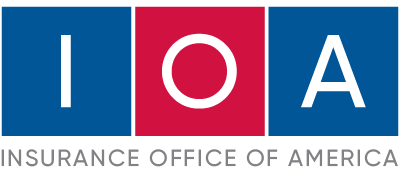 A recent report from Allianz discusses the impact the P&C insurance industry and society at large will see from artificial intelligence (AI), including adjustments to the way risks are underwritten and how coverage will evolve. Assuming complete adoption of AI across all industries reviewed, the report claims AI technology is expected to increase corporate profitability in 16 industries across 12 economies by an average of 38 percent.
A recent report from Allianz discusses the impact the P&C insurance industry and society at large will see from artificial intelligence (AI), including adjustments to the way risks are underwritten and how coverage will evolve. Assuming complete adoption of AI across all industries reviewed, the report claims AI technology is expected to increase corporate profitability in 16 industries across 12 economies by an average of 38 percent.
AI in P&C Insurance
The most common, public-facing AI impacting the P&C industry right now is autonomous vehicles. This technology brings its own set of risks and impacts to the P&C industry. Michael Bruch, an environmental and risk engineer and head of emerging trends and the environmental and social governance department of Allianz Global Corporate & Specialty SE (AGCS), said in an interview with Shawn Moynihan, editor-in-chief of National Underwriter Property & Casualty:
It is estimated that AI could help reduce the number of road accidents by as much as 90 percent, but it also brings questions about liability and ethics in the event of an incident occurring. Medium and small accidents would be reduced, but human error will still be the biggest factor.
In the foreseeable future, producers and underwriters will struggle with new questions of liability as responsibility shifts from humans to machines. As a result, some autonomous vehicle makers are providing their own insurance coverage along with a vehicle purchase.
In general, AI develops a more interconnected world, which could result in larger-scale disruptions and losses if critical infrastructures fail. Bruch noted “If something goes wrong in this interconnected world, just imagine a power blackout caused by a cyberattack to critically bottleneck a transformer. The impact of such a loss would be greater than what we’d currently see.”
New and effective risk strategies are necessary to maximize the benefits of artificial intelligence as customers begin incorporating it into their lives. P&C industry producers will likely need to evolve from a loss provider to a loss-prevention consultant as predictive and real-time analytics and performance measurements will be accessible to product owners and insurers. Not only will traditional coverage options need to adapt, but business insurance options will need to better address technological disturbances such as business interruption, cyberattacks, and reputational damage.
AI’s Ethical Impact
Data privacy, which is a growing concern in our current socio-political environment, will be one of the greatest risks. Now, not only do producers and insurance agencies have access to your personal information as part of the insurance transaction, but AI machines will be able to access and share that data with the necessary service providers. According to the Allianz Risk Barometer 2018, businesses already rank AI and other new technology as their seventh most critical risk.
Another concern for the public and insurance providers is the use of AI machines as weapons. Whether hacked by a terrorist or confiscated by officials without consent, an autonomous vehicle, for example, could be used to crash into a building or follow a suspect without the driver’s permission. This could endanger both the lives of the product owner and those around them.
Whether or not the use of artificial intelligence is ethical and how far we integrate it into our lives will need to be a larger, societal discussion and not left up to companies alone. Regulatory bodies and expert-based agencies ensuring public safety need to be established to lay the ground rules for insurance carrier involvement in protection and use of AI in their product offerings. Although the full capacity of AI’s potential isn’t thought to be produced for another decade or more, producers need to begin now to educate themselves on how to address the AI solutions beginning to integrate into society.
